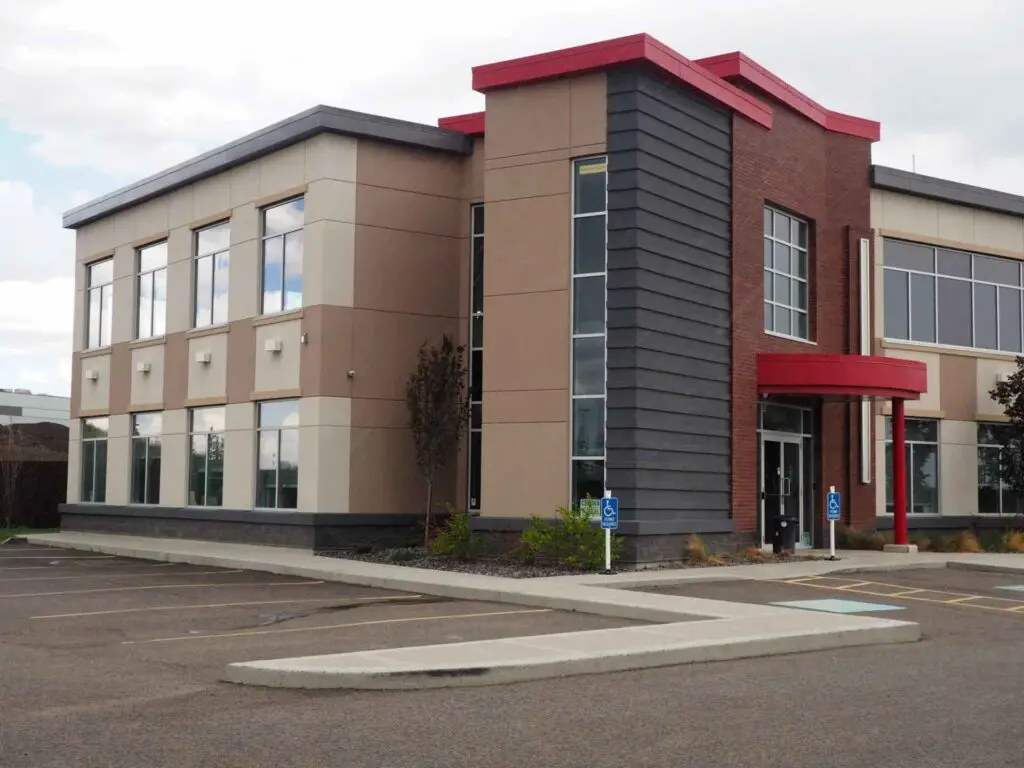
Commercial vs. Residential Painting: Key Differences Explained
Introduction
When it comes to painting, whether for a home or a business, the choices made can significantly influence aesthetics, durability, and overall atmosphere. Paint isn't just about color; it’s about creating an environment that reflects your brand or personal style. Understanding the differences between commercial and residential painting is crucial for making informed decisions regarding your space. This article will delve into the nuances of these two types of painting, exploring everything from expertise required to cost considerations.
Commercial vs. Residential Painting: Key Differences Explained
Understanding Commercial Painting
What is Commercial Painting?
Commercial painting refers to any paint job undertaken in a commercial setting, such as offices, retail stores, warehouses, and restaurants. The primary goal here is to create an appealing environment that attracts customers while More helpful hints also ensuring durability and longevity.
Types of Commercial Properties
- Retail Stores
- Corporate Offices
- Warehouses
- Restaurants
- Educational Institutions
Understanding Residential Painting
What is Residential Painting?
In contrast, residential painting focuses on private homes and living spaces. It's all about personal expression and enhancing the comfort of one’s home.
Types of Residential Properties
- Single-Family Homes
- Multi-Family Units
- Condos
- Townhouses
Key Factors in Choosing Commercial vs. Residential Painters
1. Scope of Work
Commercial Projects:
Typically larger in scale and complexity, involving multiple units or extensive areas requiring specialized techniques.
Residential Projects:
Generally smaller with a more focused scope, often involving single rooms or entire houses.
2. Expertise Required
Who Are Commercial Painters?
Commercial painters often specialize in large-scale projects with knowledge of various materials and techniques suited for high traffic areas.
Who Are Residential Painters?

Materials Used: A Comparative Analysis
3. Paint Types for Commercial Use
Commercial exterior painting often requires specific types of paint that withstand weather conditions and heavy wear:
4. Paint Types for Residential Use
Residential paints focus more on aesthetic appeal:
Cost Considerations: Budgeting Your Project
5. Pricing Structure Differences
The pricing structure can vary widely:
| Factor | Commercial Painting | Residential Painting | |-------------------------|-----------------------|------------------------| | Material Costs | Higher (bulk pricing) | Lower | | Labor Costs | More workers needed | Fewer workers needed | | Duration | Longer timeframes | Shorter timeframes |
6. Long-Term Value vs Short-Term Investment
While residential painting may seem cheaper initially, commercial exterior painting can provide long-term value through durability and lower maintenance costs.
Timeframe: How Long Will It Take?
7. Project Duration Comparison
How Long Does Commercial Painting Take?
Due to its scale and complexity, commercial projects may take weeks or even months.
How Long Does Residential Painting Take?

Regulatory Compliance: Navigating Legalities
8. Licensing Requirements for Commercial Contractors
Most states require commercial painters to have specific licenses due to the scope of work involved.
9. Licensing Requirements for Residential Contractors
Residential painters typically face fewer regulations but should still comply with local guidelines to protect homeowners' interests.
Tools & Equipment: What’s Different?
10. Equipment Used by Commercial Painters
11. Equipment Used by Residential Painters
Safety Protocols: Protecting Lives While Working
12. Safety Measures in Commercial Settings
Due to the scale of work involved, commercial painters must adhere to strict OSHA regulations concerning safety gear and procedures.
13. Safety Measures in Residential Settings
While less extensive than commercial projects, residential painters also need basic safety protocols like mask-wearing during spray jobs.
Color Choices & Trends: What’s In Season?
14 . Color Trends in Commercial Spaces
Businesses often opt for colors that reflect their branding strategy—think bold colors that attract attention!
Popular Colors:
- Red (for urgency)
- Blue (for trust)
- Green (for eco-friendliness)
15 . Color Trends in Residential Spaces
Homeowners lean towards inviting shades that promote relaxation:
Popular Colors:
- Soft pastels
- Earth tones
- Warm neutrals
Customer Experience & Interaction Differences
16 . Client Interaction During Commercial Projects
Involves detailed discussions with stakeholders focusing on branding needs rather than personal preferences.
Key Elements:
- Regular updates
- Meetings pre-and post-project
- Extensive feedback loops
17 . Client Interaction During Residential Projects
More personalized; homeowners express aesthetic desires frequently leading up to decisions about colors or finishes.
Key Elements:
- Home consultations
- Personalized recommendations
- In-depth design discussions
Finding the Right Contractor: Tips & Tricks
18 . Choosing a Reliable Commercial Contractor
When searching “commercial painting contractors near me,” ensure you check qualifications including licensing, insurance coverage as well as client reviews.
Key Questions To Ask:
- How long have you been operating?
- Can you provide references?
- What are your safety protocols?
19 . Choosing a Reliable Residential Contractor
Looking up “residential painters near me” involves similar vetting processes but focuses more on aesthetics than compliance issues.
Key Questions To Ask:
- Do you specialize in my type of project?
- Can I see previous work samples?
- What finishes do you recommend?
Environmental Considerations: Sustainable Practices

20 . Eco-Friendly Practices in Commercial Painting
Many businesses are now opting for sustainable paints—low-VOC options help improve air quality without compromising on finish quality!
Benefits Include:
- Reduced environmental impact
- Healthier workspace environments
- Increased marketability among eco-conscious consumers
21 . Eco-Friendly Practices in Residential Painting
Homeowners too can benefit from choosing green products—look out for certifications like LEED when selecting paints!
Benefits Include:
- Safer indoor air quality
- Lower toxicity levels
- Enhanced resale value thanks to sustainable upgrades
Maintenance Post-Painting: Keeping It Fresh
22 . Maintenance Tips for Commercial Spaces
Regular inspections help maintain appearance—touch-ups should occur at least every three years depending on traffic patterns!
Essential Practices:
1) Regular cleaning schedules
2) Immediate repairs on damage
3) Seasonal inspections
23 . Maintenance Tips for Residential Spaces
Homeowners should aim for touchups every five years based upon exposure conditions i.e., sun exposure etc.!
Essential Practices:
1) Clean surfaces regularly
2) Address issues promptly
3) Opt-in yearly inspections
FAQs About Commercial and Residential Painting
FAQ #1: What is the average cost difference between commercial and residential painting?
The average cost of commercial projects tends to be higher due to scale—but specific numbers depend heavily upon project details!
hr17hr17/# FAQ #3: Do I need special permits before starting either project type? Yes! Local regulations often dictate whether permits are necessary—check ahead before commencing any job!
hr19hr19/# FAQ #5 : Is there warranty coverage available after completion? Most reputable companies offer warranties covering workmanship/material defects! Always inquire beforehand!
hr21hr21/##
Conclusion
Understanding the distinct characteristics between commercial versus residential painting equips you with valuable insight into your decision-making process! From budget considerations through maintenance practices post-job—knowing these differences ensures not only aesthetic satisfaction but also longevity! Whether you're looking at exterior commercial painting or seeking out reliable contractors nearby—the key lies in thorough research coupled with informed choices tailored towards your unique needs!